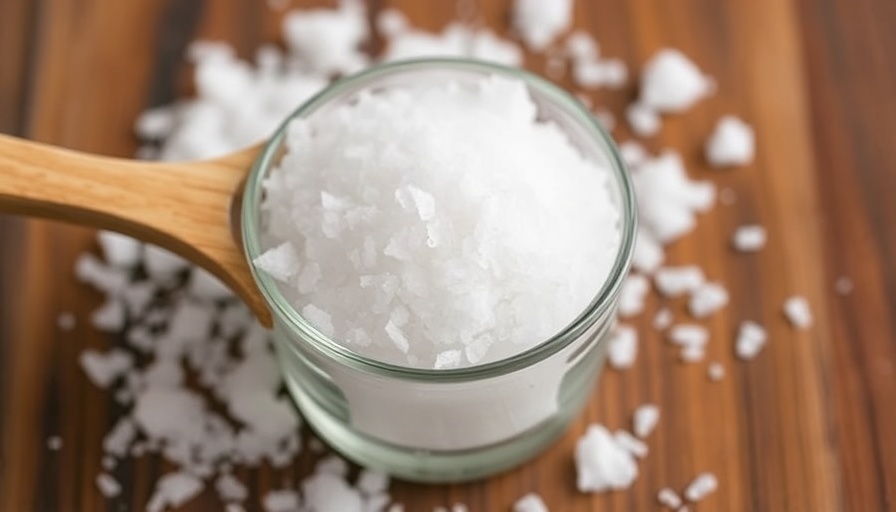
Understanding the Salt Debate: Natural vs. Table
In recent years, the popularity of premium salts such as flaky sea salt and pink rock salt has soared, thanks in part to the appeal of gourmet cooking showcased by TV chefs. Many consumers believe that these 'natural' salts offer better health benefits than standard table salt. However, recent expert opinions suggest that this assumption may be misguided.
The Real Nutritional Value of Natural Salt
While it's true that some gourmet salts undergo less processing and contain trace minerals, the actual health benefits might not be as significant as they seem. Sonia Pombo, a registered nutritionist at Action on Salt, emphasizes that the amounts of minerals like potassium and magnesium found in these salts are negligible. "If you want micronutrients, eat a piece of fruit," she states, highlighting the need for real nutrition rather than relying on flavor enhancers.
The Risks of Excess Salt Consumption
One clear consensus among health experts is the proven link between high salt consumption and health issues such as high blood pressure and increased risk of certain diseases. The UK guidelines recommend a maximum daily intake of six grams, yet most adults consume about 40% more than that. Pombo suggests that many individuals would thrive on as little as one gram a day, advocating for a gradual reduction in intake rather than swapping table salt for more costly alternatives.
Cooking Smart: Reducing Salt Intake
To improve your health without losing flavor, consider home cooking more often. This way, you can control the amount of salt in your meals and be mindful of hidden salts in commercial products, particularly in packaged bread and sauces. This simple adjustment not only promotes better health but also encourages healthier eating habits overall.
The Misleading Allure of Specialty Salts
Marketed as health-conscious choices, specialty salts can create a false sense of security around salt consumption. Although they may seem like a healthier option, Pombo insists that they are not necessarily superior for average consumers. Instead of focusing on specific salt types, the key is to manage your overall salt consumption.
Practical Health Tips for Everyday Wellness
Incorporating holistic wellness into your lifestyle doesn't just revolve around food choices; it extends to many daily habits. Here are some tips to boost your well-being:
- Mind Your Portions: Understand serving sizes, especially when eating out.
- Read Labels: Become familiar with sodium content in packaged foods.
- Keep Hydrated: Drinking enough water can help maintain balance and curb cravings.
- Engage in Regular Exercise: A daily fitness routine promotes not only physical wellbeing but also mental clarity.
- Focus on Whole Foods: Opt for a balanced diet rich in fruits, vegetables, grains, and protein.
Your Health is in Your Hands
The bottom line is, while salt is an essential nutrient, its consumption must be carefully managed. Whether you prefer natural sea salts or table salt, the best approach for your health is to reduce overall intake and be mindful of hidden sources of sodium. By prioritizing these habits over a specific type of salt, you contribute positively to your overall health and wellness.
Take charge of your health today! Start by evaluating your dietary habits and making conscious choices when it comes to salt and other nutrients.
 Add Element
Add Element  Add Row
Add Row 



Write A Comment